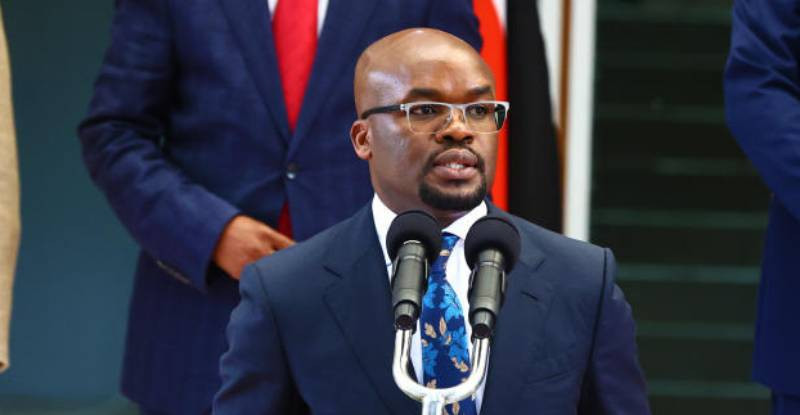NAIROBI: The Security Laws (Amendment) Bill 2014 – a voluminous piece of proposed legislation which has 90 pages and 109 Sections and proposes to amend 21 different existing Acts – has created unprecedented debate, mainly bordering on its constitutionality.
The hurriedly pushed legislation will undoubtedly have a mammoth affect on criminal law. The constitutionality of laws, once enacted, will be examined microscopically by all affected by the new law.
The judiciary in this age is strong enough to remedy any excesses – it does it every day and Kenyans have faith in the institutional efficacy and independence of the High Court, Court of Appeal and even the Supreme Court.
The reality of today and what happens on the ground not only in courts but other arms of the justice system, raises profound concerns.
I have practised criminal law for over 43 years.
I practise where those who can bring about material change such as the Chief Justice, Director of Public Prosecutions and the Attorney General, have not appeared in the last four years or so wearing a practitioner's shoes.
My day-to-day life revolves around what is referred to as Lower Courts, Subordinate Courts or Resident Magistrate's Courts.
My typical day at work involves going to courts in Makadara, Kibera, Naivasha, Nakuru, Narok and other upcountry stations.
There is no room to be polite or diplomatic. The justice system in most parts of the country is creaking, inefficient, capable of being manipulated and exploited which leads to hundreds of accused – who should be behind bars - being discharged or acquitted.
Lawyers love the word proof. And proof of this collapse must be given lest I am blamed for being an alarmist.
Last Thursday I had a hearing in a Makadara Court. It was not even listed despite having been fixed two days before! More importantly, I was ushered to a court where fifty hearings were listed before one magistrate, in addition to over 17 "mentions".
The magistrate did not come to court as he was sick and the prosecutor announced that the magistrate was indisposed.
A court clerk offered new dates, made notes in the files, while another magistrate I presume, signed the day's proceedings to give the record some semblance of legality.
In a 2010 case I was involved in, the court "lost " or "misplaced" all the exhibits. I am further privy to the fact that there was a day when the work of over eight magistrates was being carried out by two – with all hearings being given dates for mid-next year.
Go to any lower court, and despite hundreds of cases being listed, most cases do not go on because of prosecutorial indifference.
Stay informed. Subscribe to our newsletter
Every day there are applications for adjournments on the grounds that the police file is not availed to the prosecutor, witnesses have not been summoned or the investigating officer is on another assignment.
The appointment of State prosecutors may well have brought greater professionalism but the police prosecution versus state prosecution rivalry is apparent.
At the end of the day, security is dependent on police investigators. Let the truth be told that the morale in the revived police force is at its lowest ebb and the likelihood of it ever improving is remote.
I will give two real life illustrations of cases involving witnesses in murder cases - the gravest of offences in our Penal Code.
In one case, a police investigating officer of the rank of corporal had not been promoted ever, despite being in the CID service for 30 years, and in another for 28 years.
What incentive these officers can have to safeguard security is the question.
During the days of Charles Njonjo, the Hanging Bill did not reduce robbery cases, in the days of minimum penalties for stock theft and handling stolen property in the early 70's, stock theft and handling were not curbed.
Increase in sentences involving traffic offences has not reduced road carnage. The Sexual Offences Act is a great failure and the mere fact of a life sentence vis-a-vis a minimum sentence has not curbed sexual criminality.
It is all very well to have laws on the statute books which provide for very grave penalties, but what happens when enforcement and proving the cases in court is not being addressed?
Even "petty" cases in which the accused pleads "not guilty" take up to two years.
I am aware of ongoing cases which have lasted for over 10 years resulting in prosecutorial and evidential apathy, with acquittals being the norm in most delayed cases.
The Security Bill is scheduled for a third reading tomorrow in the recalled Parliament. It is of great concern that the very basis of criminal and evidential laws will change forever.
The balance between human and fundamental rights versus security must be appreciated but the mechanisms of dispensing justice to the accused and victims of crime need to be debated with great caution, keeping the work ethic and challenges of investigators and prosecutors in focus.
In the investigative, prosecutorial and judicial process there is need for another surgery and the earlier this is done the better.
 The Standard Group Plc is a
multi-media organization with investments in media platforms spanning newspaper
print operations, television, radio broadcasting, digital and online services. The
Standard Group is recognized as a leading multi-media house in Kenya with a key
influence in matters of national and international interest.
The Standard Group Plc is a
multi-media organization with investments in media platforms spanning newspaper
print operations, television, radio broadcasting, digital and online services. The
Standard Group is recognized as a leading multi-media house in Kenya with a key
influence in matters of national and international interest.
 The Standard Group Plc is a
multi-media organization with investments in media platforms spanning newspaper
print operations, television, radio broadcasting, digital and online services. The
Standard Group is recognized as a leading multi-media house in Kenya with a key
influence in matters of national and international interest.
The Standard Group Plc is a
multi-media organization with investments in media platforms spanning newspaper
print operations, television, radio broadcasting, digital and online services. The
Standard Group is recognized as a leading multi-media house in Kenya with a key
influence in matters of national and international interest.









